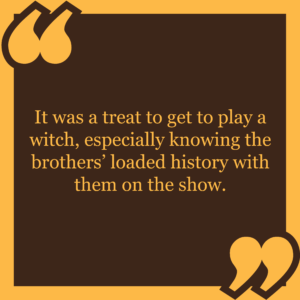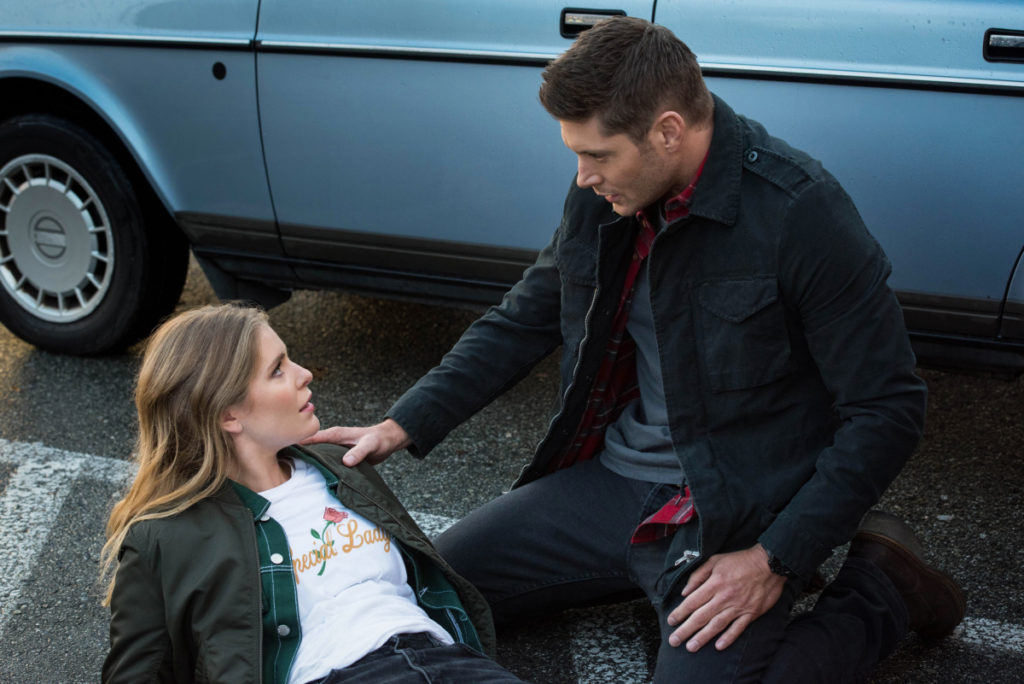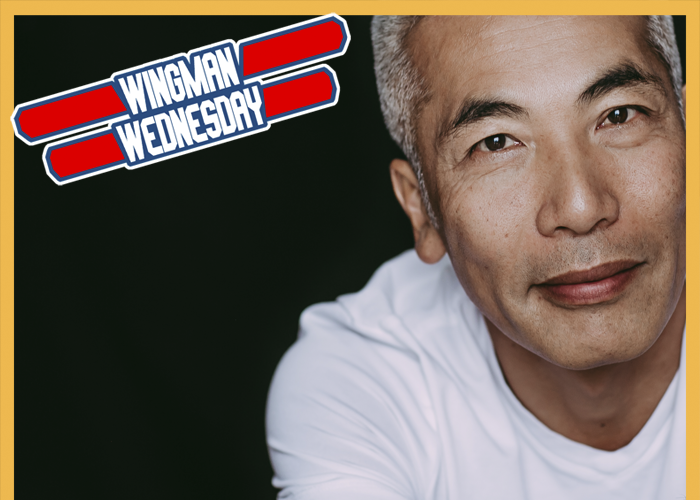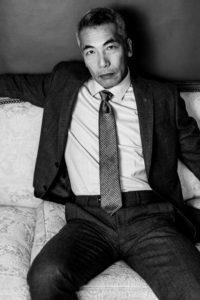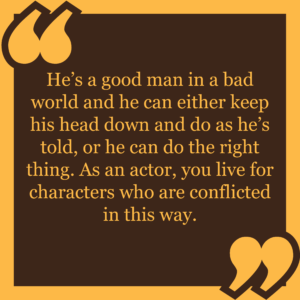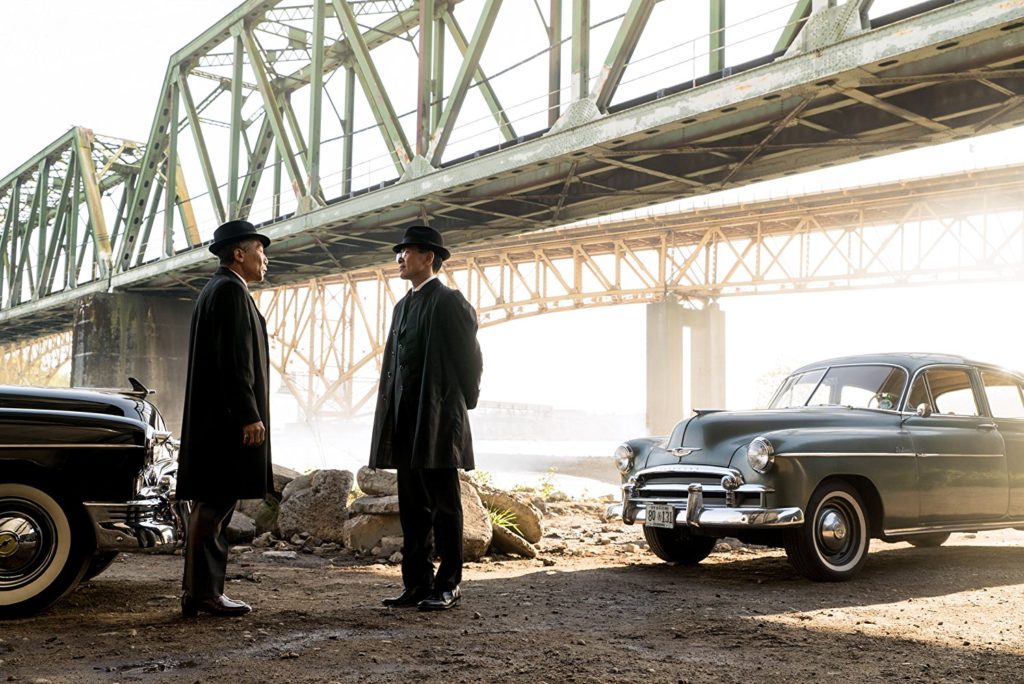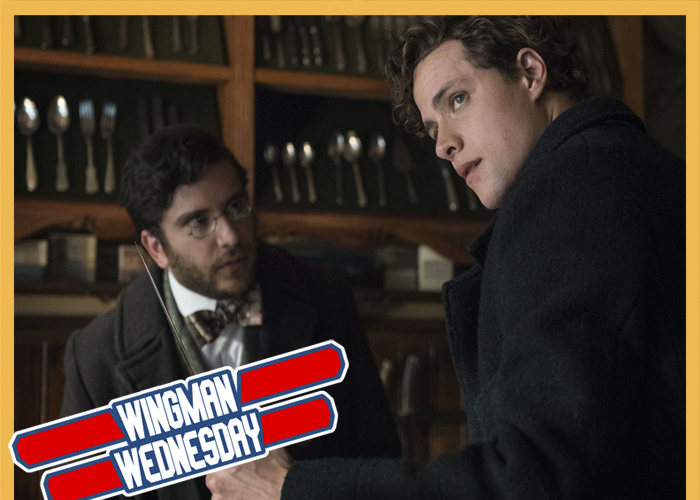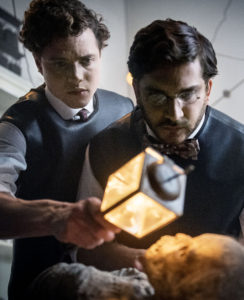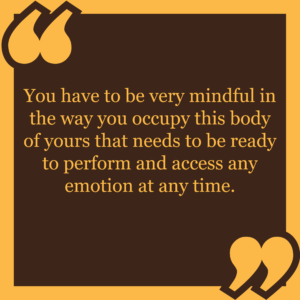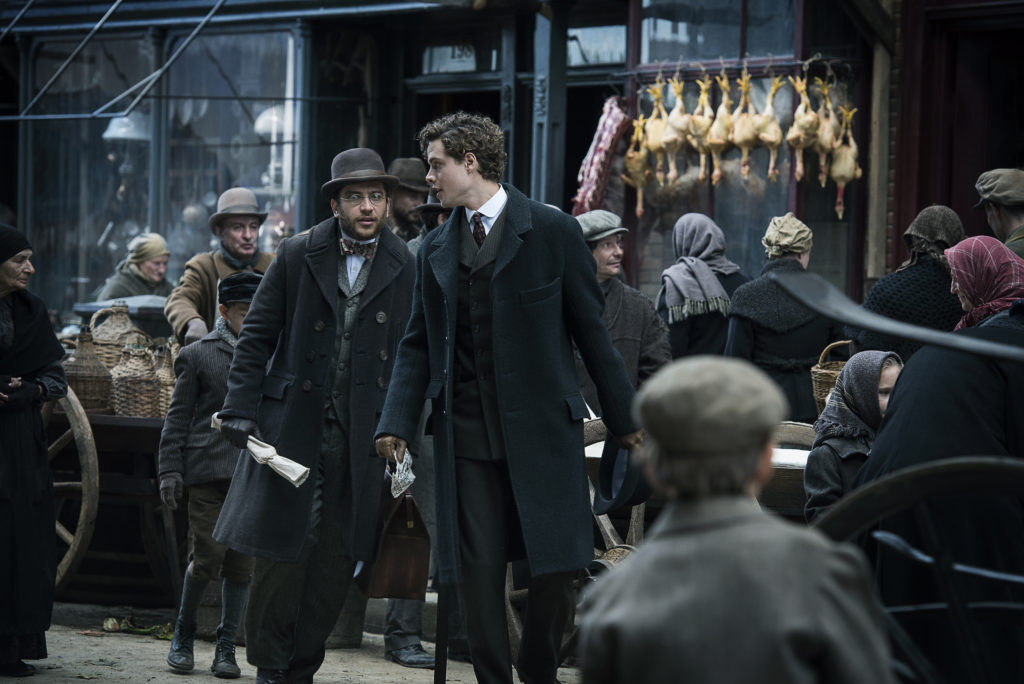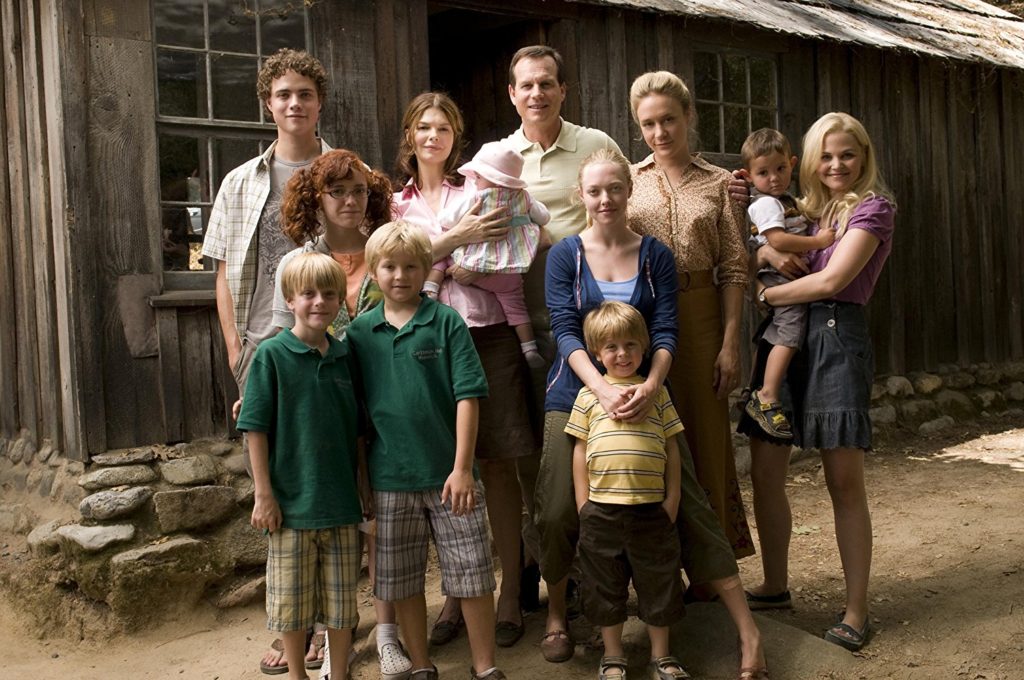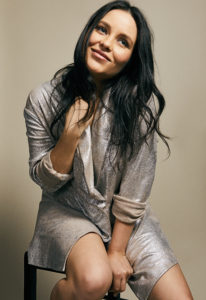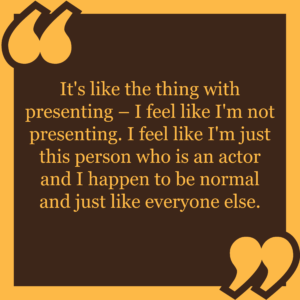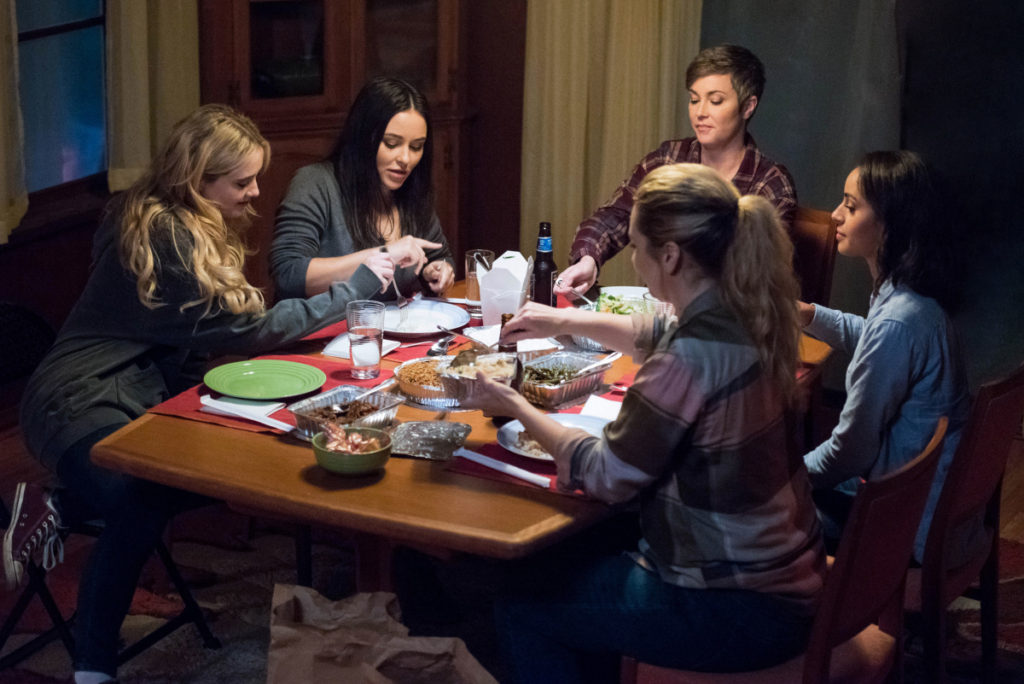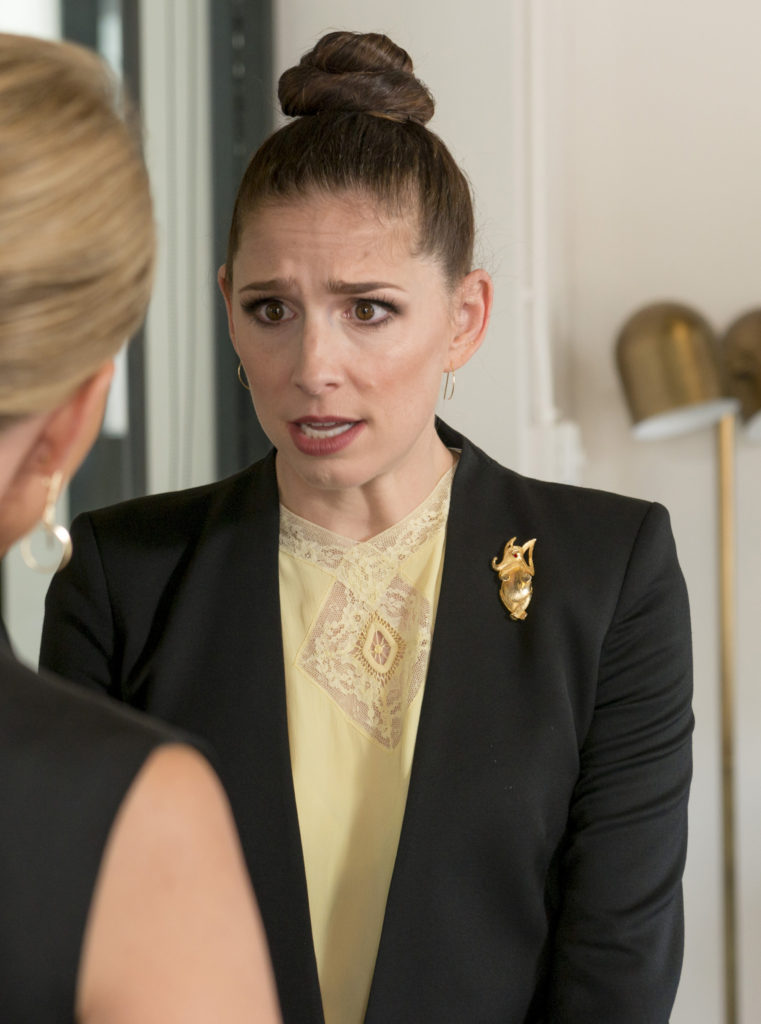
For Shoshannah Stern, her new series “This Close,” which airs on SundanceTV’s streaming platform Sundance Now, is more than a career game changer. As a deaf actress, she has struggled with booking jobs. On those projects that she was cast in, a sense of dignity always accompanied the paycheck, one that went beyond her thespian ambitions. Getting to see the fruits of her creative labor come to life is a dream come true, but having a hand in employing nearly 20 deaf people throughout the production of “This Close” is a piece of the artistic puzzle that she has immense pride in.
We recently sat down with Stern to discuss the transformative journey of the series, Post-it note excitement, and why she mourned the loss of her “Supernatural” character Eileen along with the rest of the fandom.
TrunkSpace: You have put so much of yourself into “This Close,” from developing the story and characters to inhabiting one of the characters onscreen. What are you most proud of when it comes to the series?
Stern: I have gone months, even years without working. This isn’t a unique story when it comes to the acting thing, because I know something like 90 percent of actors at any given point aren’t working. However, actors who aren’t deaf usually don’t have any trouble finding a day job, and that’s something that’s very challenging for deaf people. The statistics are actually kind of staggering. Something like 70 percent of deaf people in America are either unemployed or underemployed. I know whenever I booked a job in the past, I got this sense of dignity that went beyond just the acting thing – I felt a real sense of having earned a place at a table as a contributing member of society. And then whenever that job wrapped, I’d go back to not being able to have a seat at that table anymore. I’d feel as if I was kind of standing in the back of the room staring at all the people that were sitting there and just yearning to be at that table again. So the fact that we were able to create around 18 different positions through all stages of production, both in front and behind the camera, that went to deaf people, and not only seeing, but feeling from them that same sense of self-worth, that’s probably what I’m proudest of.
TrunkSpace: When you first sat down to develop “This Close,” were you writing Kate with yourself in mind, and in doing so, did you consciously/subconsciously put elements of yourself into who she is?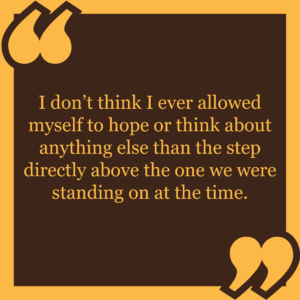
Stern: The very first iteration of “This Close” was a pilot Josh (Feldman) and I made in one day for $250 and then put on YouTube. In that iteration, Kate and Michael were pretty much identical to Josh and I in real life. But along the way, after it became the webseries and then the television show, the characters gradually took on lives of their own. But because the writing process for “This Close” was so compressed (we wrote the first season in around seven weeks) I really didn’t have a chance to think about actually playing Kate until the day before. I was so in writing mode that once I shifted to acting mode I was kind of like, “Oh shit.” But while her and I are very different in reality, I think she’s someone I would want to be friends with. There’s a lot I admire about her, like how light and bubbly she is and how she always sees the best in people while trying to be better herself.
TrunkSpace: Projects seem to linger for a long time in Hollywood before they ever see the light of day. How long was “This Close” gestating in your mind before you started putting words to page and ultimately stepped on set to shoot your first scene?
Stern: We had our big cast and production dinner the night before we started shooting, where I finally met Zach Gilford for the first time after casting him, and during that time, Josh turned to me and we realized that we had shot the first pilot for YouTube exactly two years ago to the day. But there’s so much of our lives and experiences in the show, saying it only took two years seems like cheating a little bit!
TrunkSpace: As you mentioned, the concept began as a webseries and ultimately became the television show it is today. Would you say that it has exceeded expectations for you in terms of how far you had hoped it would go, both creatively and from a business standpoint?
Stern: Definitely. I don’t think I ever allowed myself to hope or think about anything else than the step directly above the one we were standing on at the time. I mean, I encourage my 3-year-old daughter to fantasize as much as she can because I think that’s one of the healthiest thing you can do whether you’re 3 or 33, but fantasizing is different than hoping. All I knew is that I hoped we could keep going, and I wanted to get to that next step. It’s a bit mad being at that point now where we’re able to look back the way we’ve come and see all the steps that we’ve taken.
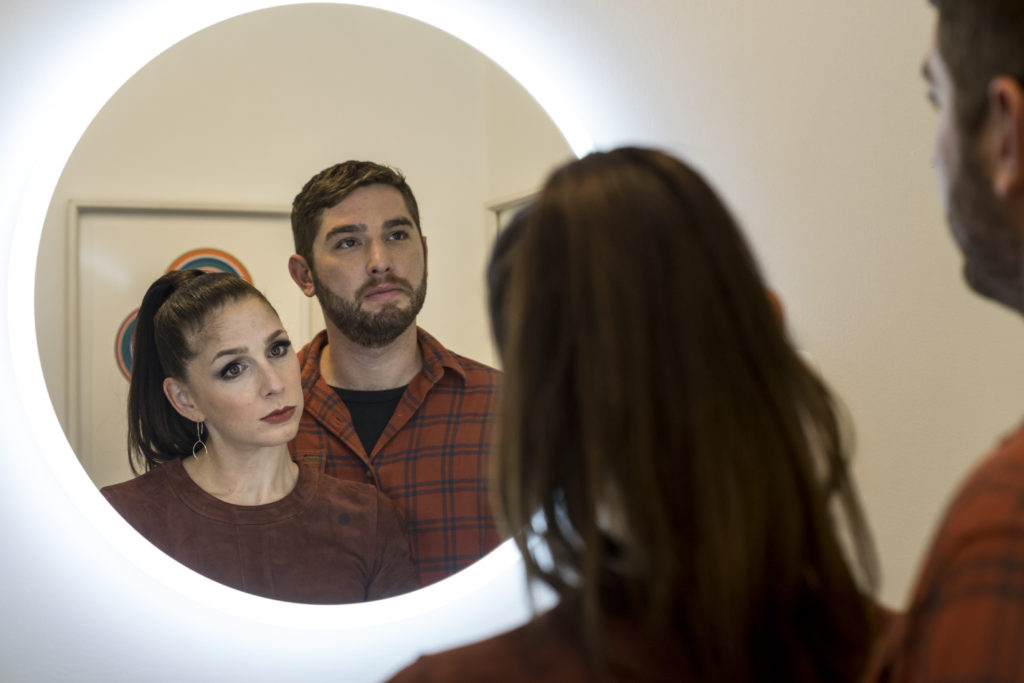
TrunkSpace: When the series expanded to a different format, did it force you to take a different creative approach to the pacing and overall storytelling? Did it become a different show in any way than what you originally envisioned?
Stern: Absolutely. It became a different show every time. When we did “Fridays,” the YouTube version, we knew we had a budget of $250 so we had to limit the location since we only had one. So it was basically just 20 minutes of two characters talking about nothing and everything. When it became “The Chances,” we knew we had a bit more to work with, so we knew we could make the world of the show a little bit bigger and include more people. But with a seven-minute platform, we felt it would be better to focus on more of the humor of their lives and interactions. However, when we got the green light to take it to television, we always knew we wanted to make their world darker now that we had a bigger sandbox to play in. So I’ve always felt like we made three different versions of the show before it became “This Close.”
TrunkSpace: As far as creative fulfillment is concerned, what was the moment like when you discovered that “This Close” was picked up to series? How did you celebrate?
Stern: I remember my sister asking me how I celebrated and like, celebrating hadn’t even occurred to me. I was just so excited about getting to write and have it be an actual job and not just on spec. I was thrilled about getting our own office and being able to put Post-its on the wall. That was my fulfillment because that’s always been a dream of mine. But after being scolded at by my big sister I was like, “Yes, ma’am.” So I vaguely remember Josh and I getting some champagne somewhere one night, but then we talked about work the whole time. Being able to create, that’s where the celebration is at for me.
TrunkSpace: Do you feel like this is just the beginning for you in terms of creating and developing content? Do you have more stories to tell?
Stern: I hope it is. I have a whole plethora of ideas I’d love to bring to life, but going through this process has taught me so much. One valuable lesson is that you can’t create alone. It’s all about collaboration, and that takes a village. I’ve learned so much about collaborating through all the brilliant people that came aboard to do this crazy thing with us, and I feel like that connection you make when you’re making an idea come to life, that’s pure magic. I’d love to seek out that sort of collaboration for the rest of my life.
TrunkSpace: We’re big fans of “Supernatural” here at TrunkSpace. How much did guesting on that show as Winchester ally Eileen change your life?
Stern: “Supernatural” came along at a very auspicious time in my life. I got the offer to play Eileen when I was creating “Fridays,” and so it validated a lot of questions I had in my mind that might have unconsciously been holding me back. Creation begets creation, and so getting that creative energy I got being on set and playing her really fueled a lot of what I put in the show. In my mind and in the heart, the two are intertwined, kind of like these trees you see that have grown around the other.
TrunkSpace: There was massive social media uproar when Eileen met her untimely demise. Was it flattering to know that the fandom was so invested in not only your character but in you as a performer?
Stern: I grieved Eileen. I mean, like, I literally grieved her. She was written as such a badass that she kind of forced me to find my inner badass too. So even though I was only on the show for two episodes before she died in her third, just having her alive in the back of my mind helped me channel strength from her. So because she meant and represented so much for me, I felt her loss for quite a while. So while I hadn’t anticipated the fandom’s response in the least, the love I got from them became a real support system for me. I felt like they helped me heal from that loss and now I’m just very appreciative that I got to have Eileen for as long as I did in a time when I needed her to be there.
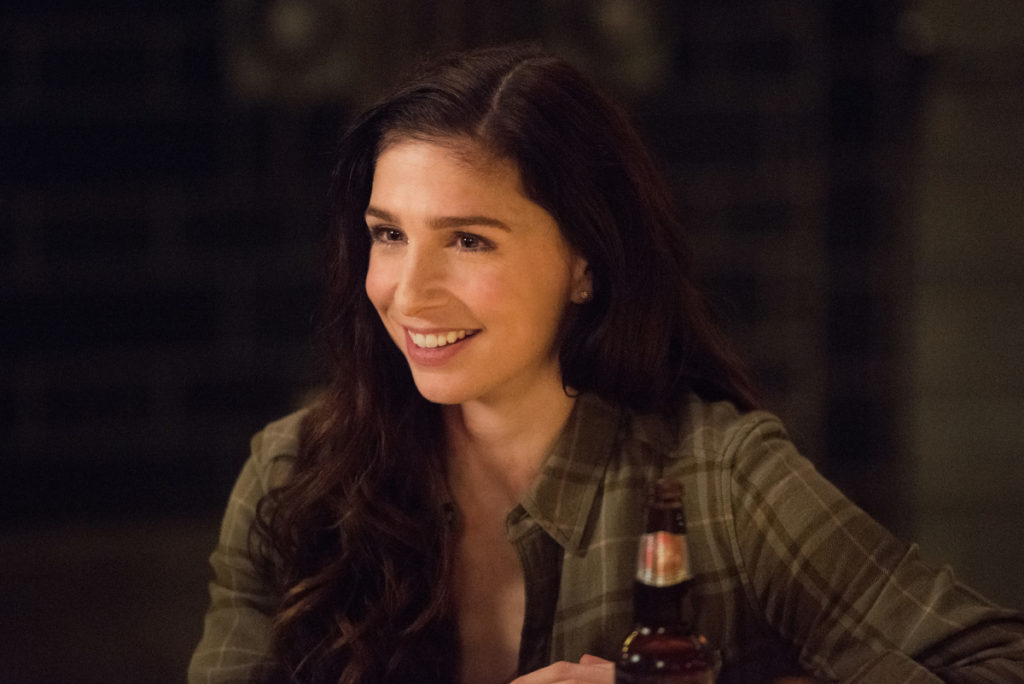
TrunkSpace: “Supernatural” is in its 13th season. If “This Close” were to go 13 seasons, where do you think Kate and Michael will be in their lives in 2031?
Stern: Oh wow. While we’ve talked and thought about the show’s future, I think the furthest I’ve ever thought about it is Season 6! But okay. In “This Close” in 2031… Kate and Michael will have settled in their skins and their lives a bit more. I see them having houses and families, possibly even a merged family of sorts, and going on vacations together. I feel like both Kate and Michael are the kind of people that will never stop evolving, so they’ll never stop growing. But I know one thing for sure, they’ll still be the very best of friends.
“This Close” premiered Feb 14 on SundanceTV’s streaming platform, Sundance Now. New episodes arrive every Thursday.


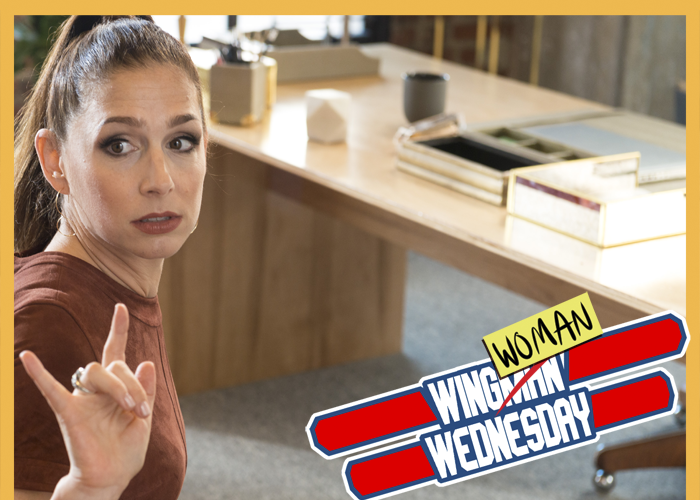
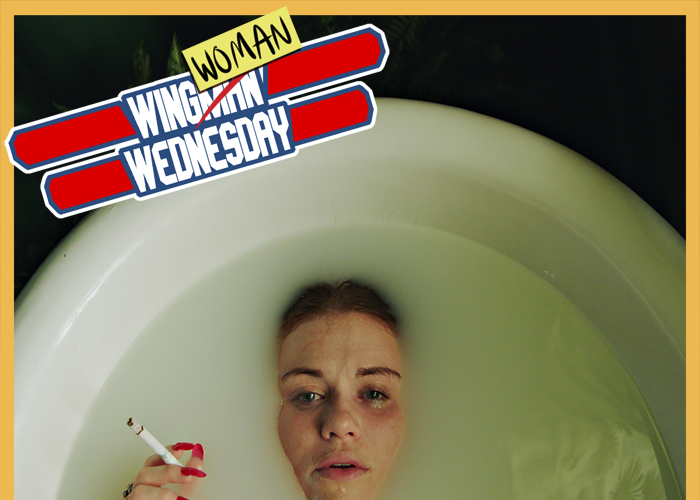
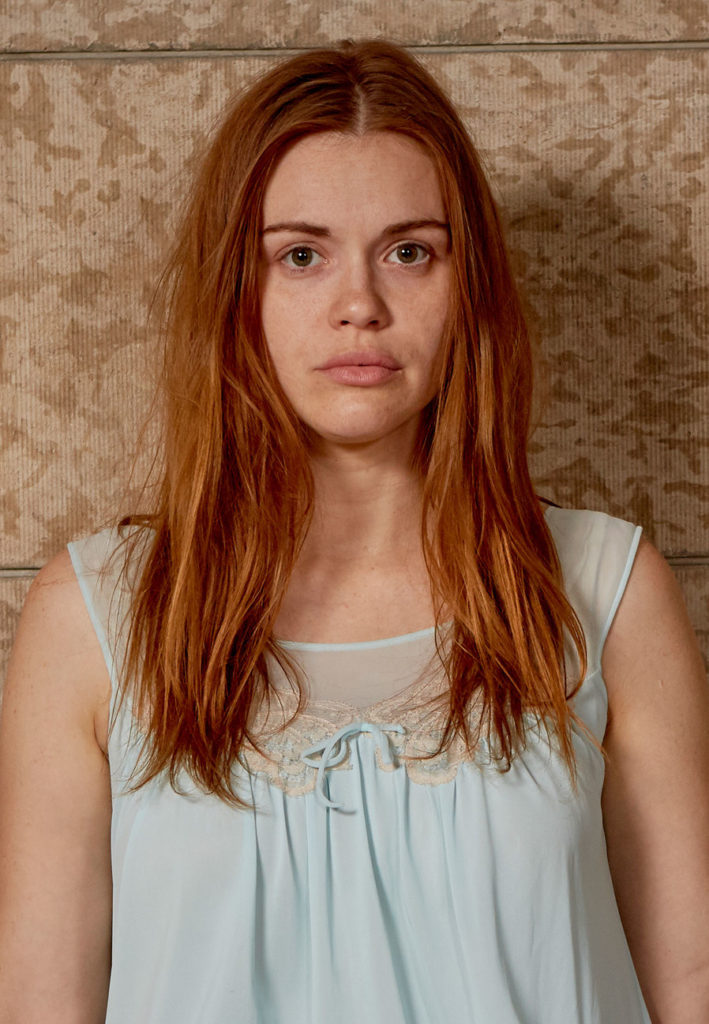 After spending six seasons on the hit MTV series “Teen Wolf,” actress Holland Roden is used to dipping her toes into the supernatural water, but like the nightly news so often teaches us, human nature is far more disturbing than those things that go bump on a full moon night. In Season 3 of the horror anthology series “Channel Zero” (subtitled “Butcher’s Block”), Roden’s character Zoe is battling demons of the personal variety while being dropped in the middle of an unsettling mystery that would make anyone question the sordid capabilities of humanity. The troubling journey offers sights, sounds and an atmosphere that blurs the line between reality and fantasy. It is the worst case scenario for a character grappling with her own soundness of judgment.
After spending six seasons on the hit MTV series “Teen Wolf,” actress Holland Roden is used to dipping her toes into the supernatural water, but like the nightly news so often teaches us, human nature is far more disturbing than those things that go bump on a full moon night. In Season 3 of the horror anthology series “Channel Zero” (subtitled “Butcher’s Block”), Roden’s character Zoe is battling demons of the personal variety while being dropped in the middle of an unsettling mystery that would make anyone question the sordid capabilities of humanity. The troubling journey offers sights, sounds and an atmosphere that blurs the line between reality and fantasy. It is the worst case scenario for a character grappling with her own soundness of judgment.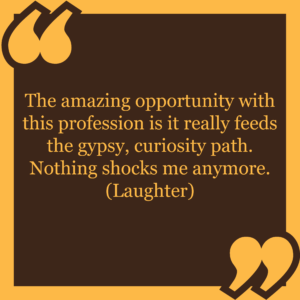 TrunkSpace: Zoe seems very different than any of the previous characters we have seen you take on in the past. Creatively, was that part of the appeal for you in “Channel Zero,” getting to tackle a character and territory that you have yet to in your career?
TrunkSpace: Zoe seems very different than any of the previous characters we have seen you take on in the past. Creatively, was that part of the appeal for you in “Channel Zero,” getting to tackle a character and territory that you have yet to in your career?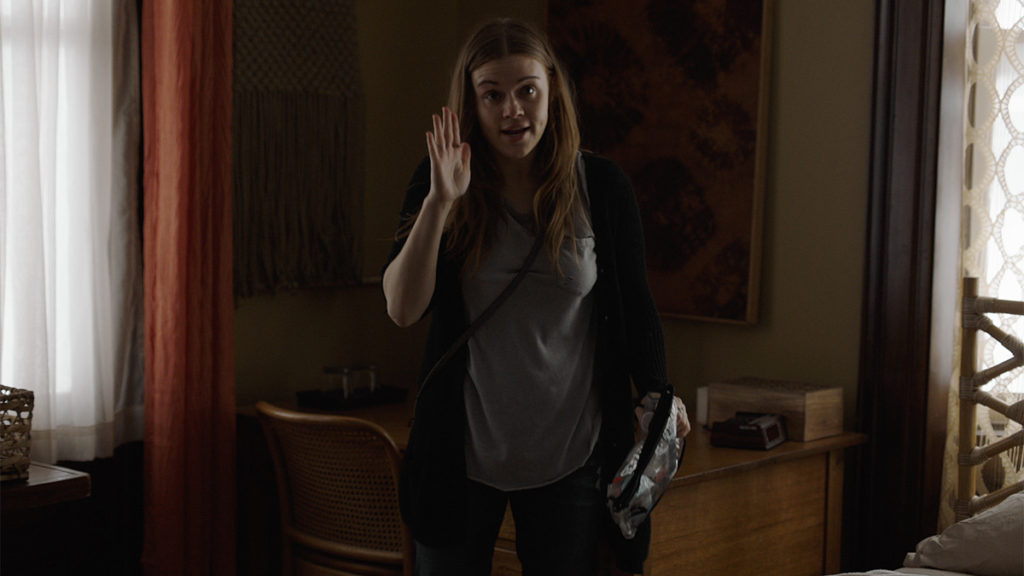

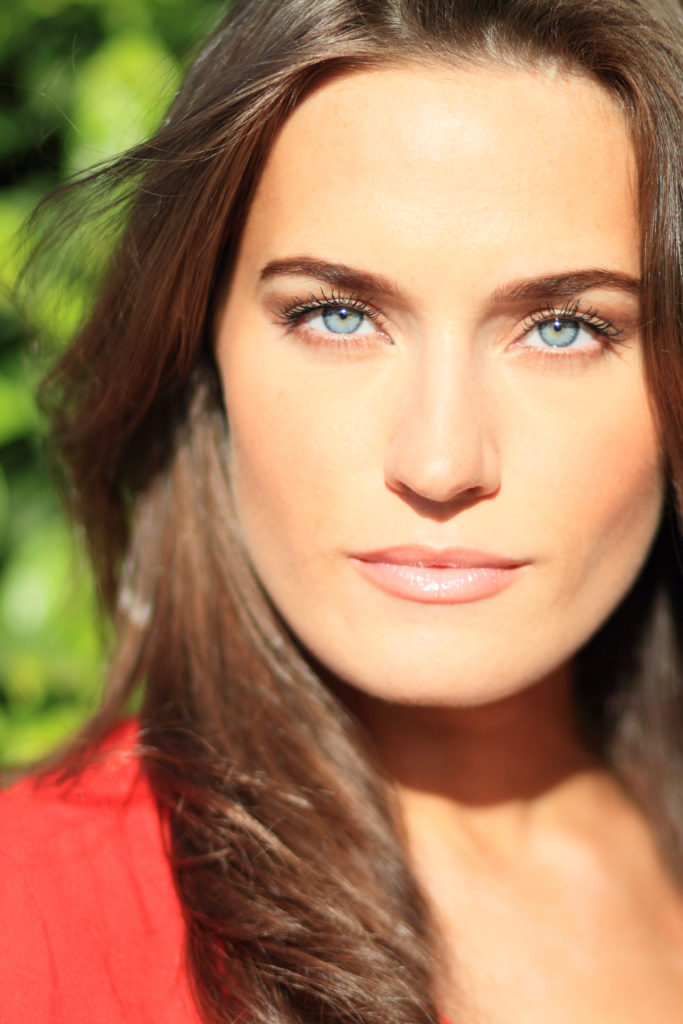 It’s not every day that such a historically significant role, one steeped in Biblical lore and legend, comes along, so when Caitlin Leahy was given the opportunity to portray Delilah in the new movie “Samson,” she opted to take a different approach to the character than we have seen in the past. Yes, Delilah tempts Samson, as is her destiny, but her motivation for setting him on such a pernicious path is not as clean cut as we have been lead to believe.
It’s not every day that such a historically significant role, one steeped in Biblical lore and legend, comes along, so when Caitlin Leahy was given the opportunity to portray Delilah in the new movie “Samson,” she opted to take a different approach to the character than we have seen in the past. Yes, Delilah tempts Samson, as is her destiny, but her motivation for setting him on such a pernicious path is not as clean cut as we have been lead to believe.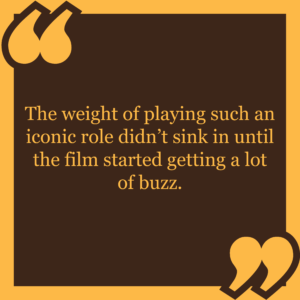
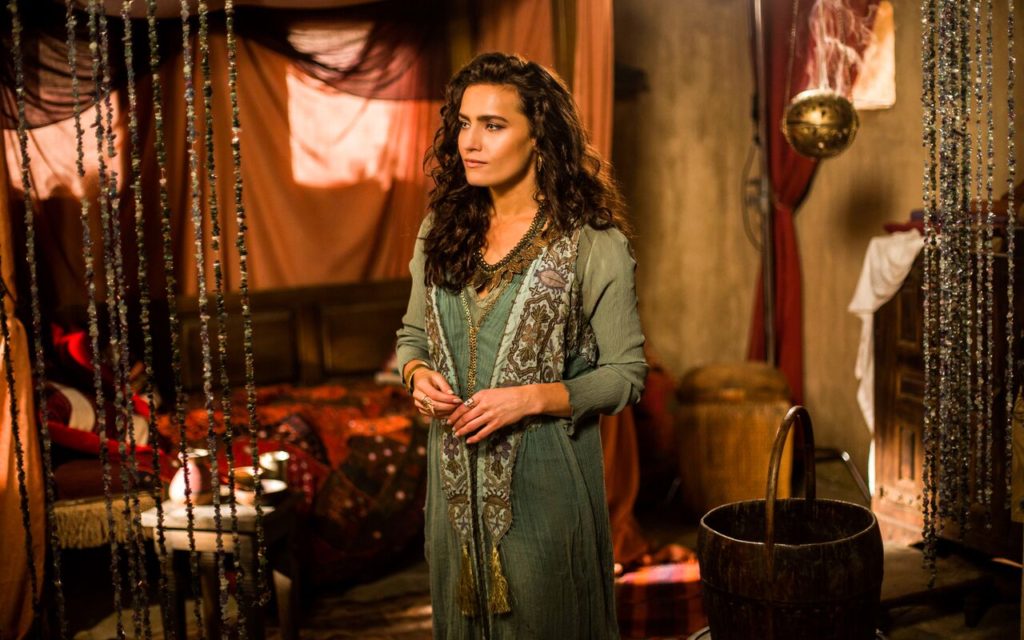
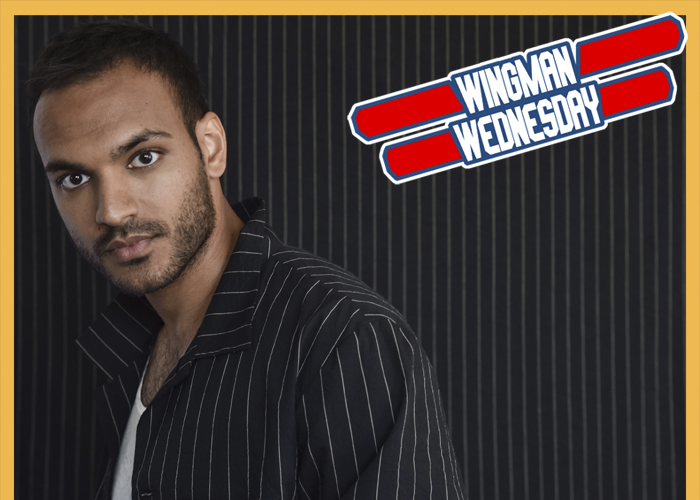
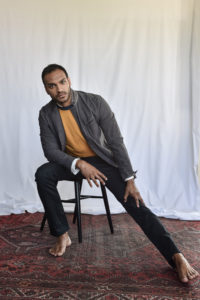 There’s magic to be found all over the tube these days. Words like whimsical, bewitching and spellbinding could easily be used to describe the rich storytelling available to binge-hungry viewers, but for fans of the SYFY series “The Magicians,” that magic is far more literal. (At least in an imaginary sense.)
There’s magic to be found all over the tube these days. Words like whimsical, bewitching and spellbinding could easily be used to describe the rich storytelling available to binge-hungry viewers, but for fans of the SYFY series “The Magicians,” that magic is far more literal. (At least in an imaginary sense.)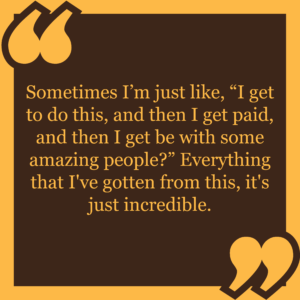
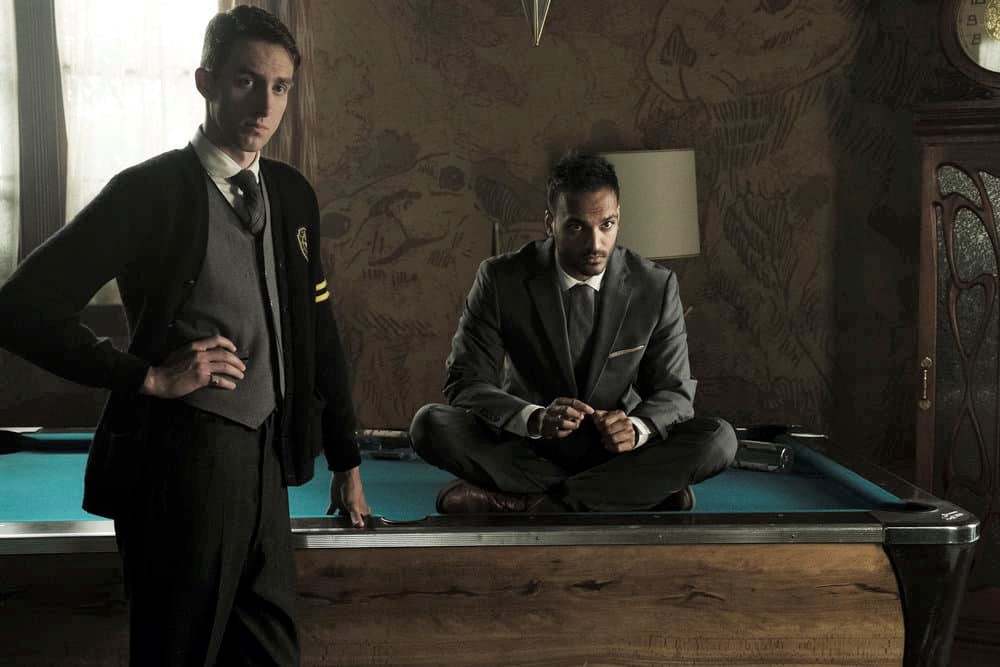
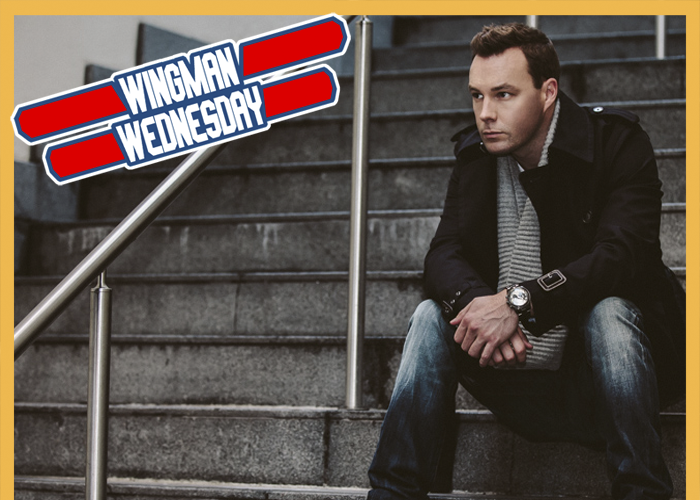
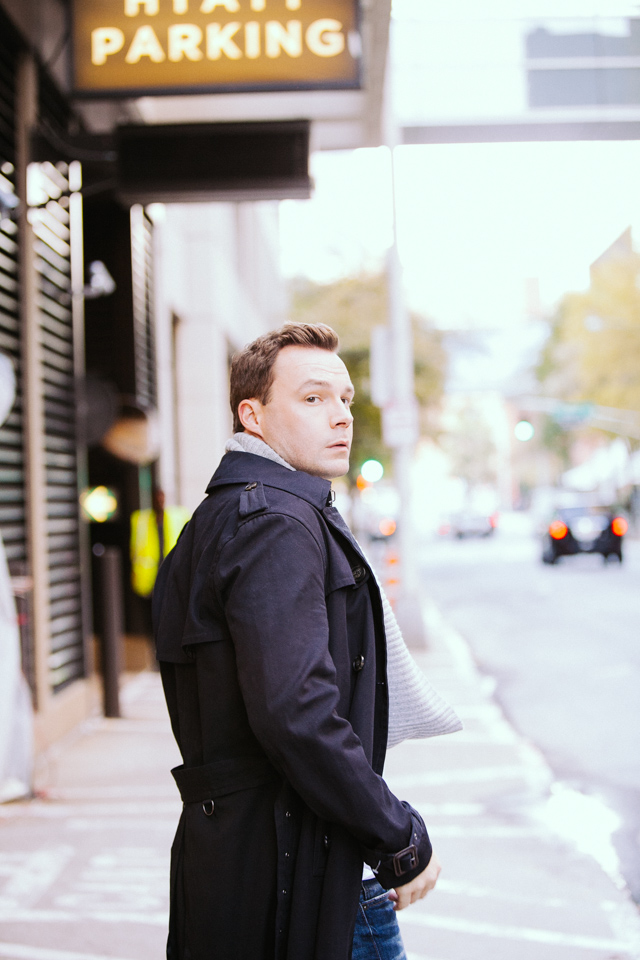
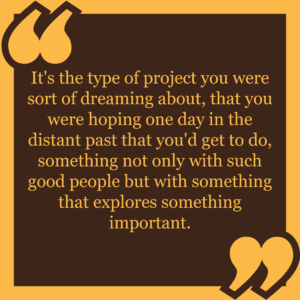
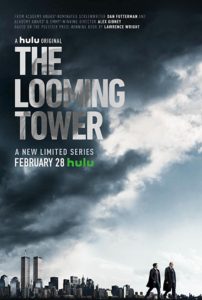 TrunkSpace: And is your character Gordon based on a real person?
TrunkSpace: And is your character Gordon based on a real person?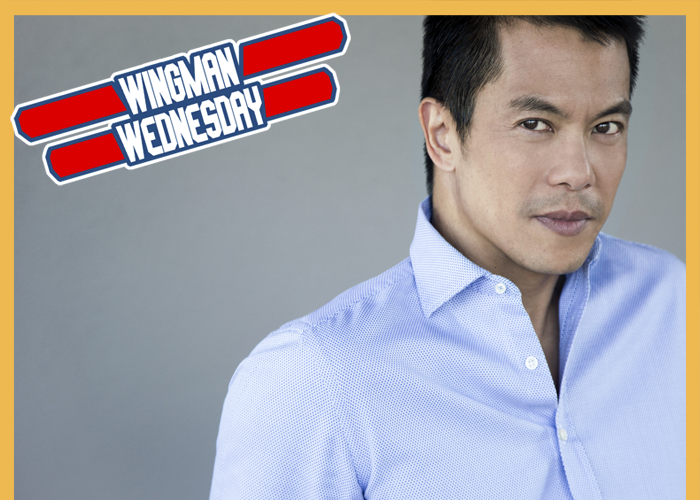
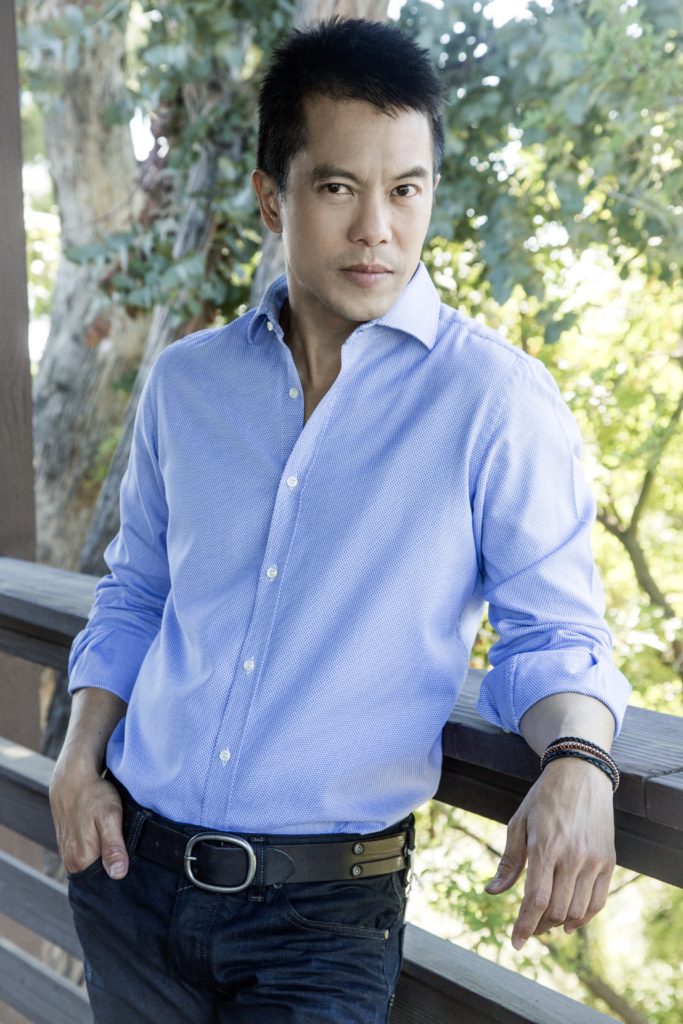
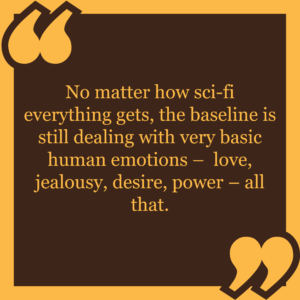
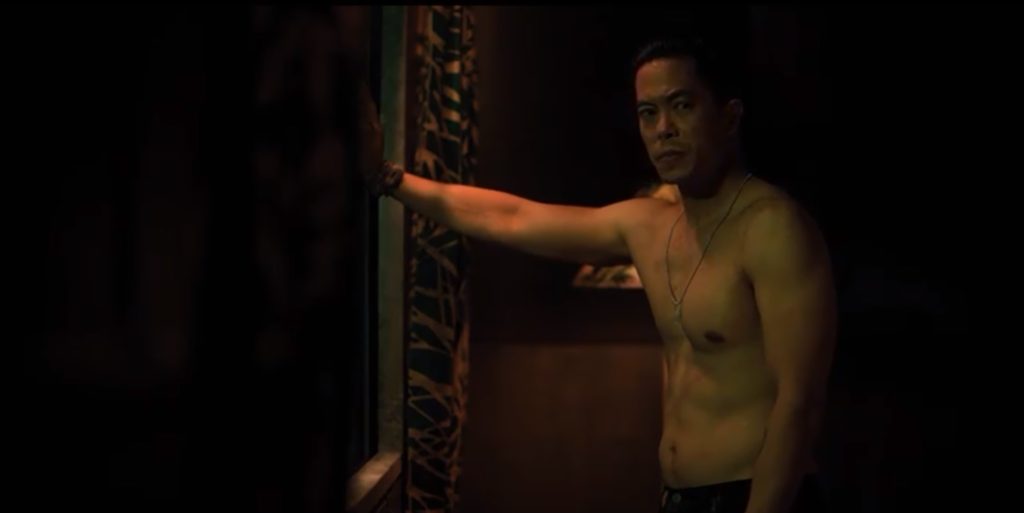

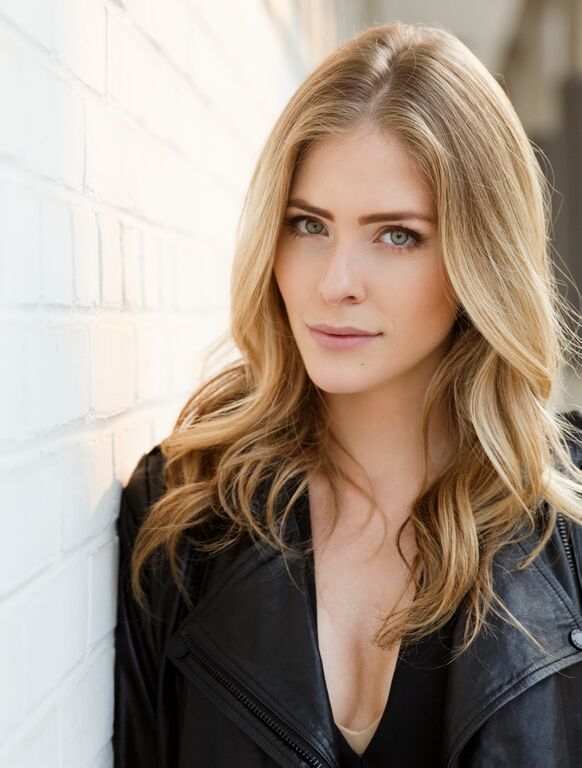 Usually when new characters are introduced into the “Supernatural” world, it doesn’t necessarily end well for the Winchester brothers. With more enemies than allies, Sam and Dean will probably have wished they steered clear of sisters Jamie and Jennie Plum, a pair of witches who make their debut in tonight’s episode, “Various & Sundry Villains.”
Usually when new characters are introduced into the “Supernatural” world, it doesn’t necessarily end well for the Winchester brothers. With more enemies than allies, Sam and Dean will probably have wished they steered clear of sisters Jamie and Jennie Plum, a pair of witches who make their debut in tonight’s episode, “Various & Sundry Villains.”